Ukraine president snubs US offer to evacuate as Russian forces close in on Kiev
Ukraine’s embattled President Volodymyr Zelensky has reportedly rejected a US offer to evacuate him out of the nation’s capital of Kiev as Russian troops closed in on the city, insisting on staying put.
The US government urged Zelensky early on Saturday to evacuate Kiev but he turned down the offer, the Associated Press reported citing “a senior American intelligence official with direct knowledge of the conversation” who spoke on the condition of anonymity.
According to the report, the official further quoted Zelensky as responding that “the fight is here" and that he needed anti-tank ammunition but “not a ride.”
Zelensky’s insistence on staying in Kiev and wage a fight marked a major reversal of his pessimistic remarks two days earlier when he declared that his country had been left on its own to fight Russia after Russian President Vladimir Putin announced a "special military operation" aimed at “demilitarization” of the Donetsk and Lugansk Republics in eastern Ukraine.
"We have been left alone to defend our state," Zelensky emphasized in a post-midnight video address to the nation. "Who is ready to fight alongside us? I don't see anyone. Who is ready to give Ukraine a guarantee of NATO membership? Everyone is afraid.”
The Ukrainian president's whereabouts were kept secret after he also informed European leaders in a call on Thursday that he was Russia’s No. 1 target — and that they might not see him again alive.
However, in his latest remarks, as cited in the AP report, Zelensky boasted renewed assurance on Saturday that the country’s military would stand up to a Russian advance. In a defiant video -- claimed to have been recorded on a downtown Kiev street -- he said he remained in the city and that reports the Ukrainian military would surrender were false.
“We aren’t going to lay down weapons. We will protect the country,” Zelensky proclaimed. “Our weapon is our truth, and our truth is that it’s our land, our country, our children. And we will defend all of that.”
The Ukrainian president further insisted in a second video published later on Saturday that Moscow’s plan “to quickly seize the capital and install a puppet government had been unsuccessful,” according to the report.
While Zelensky also accused Russia of targeting civilian areas and infrastructure in his emotional remarks, Russia insists that its operation in Ukraine is intended merely to strike military installations.
Meanwhile, Kiev Mayor Vitali Klitchsko said a missile had struck a high-rise apartment building in the city’s southwestern outskirts near one of its two airports, injuring six civilians.
Kiev mayor extends curfew hours
Klitchsko further extended a 10 p.m.-7 a.m. curfew he imposed two days earlier to run from 5 p.m. until 8 a.m. as of Saturday, warning: “All civilians on the street during the curfew will be considered members of the enemy’s sabotage and reconnaissance groups.”
The conflict has already driven hundreds of thousands of Ukrainians from their homes. United Nations officials estimated that more than 120,000 Ukrainians have left the country for Poland, Moldova and other neighboring nations.
It was unclear in the fog of war how much of Ukraine was still under Ukrainian control and how much Russian forces have seized. Russia’s Defense Ministry declared Saturday that its military forces had taken full control of the southern city of Melitopol, about 22 miles inland from the Azov Sea coast, adding that pro-Russia separatists had also made significant gains in the eastern region of Donbas.
Ukrainian and Western officials, however, insist that Ukrainian forces have managed to slow the Russian advance. Ukraine’s Infrastructure Ministry claimed a Russian missile was shot down before dawn Saturday as it headed for the dam of the sprawling water reservoir that serves Kiev.
Men of fighting age barred from leaving Ukraine
The UN estimates that up to 4 million people could flee if the fighting escalates. Refugees arriving in the Hungarian border town of Zahony said men of fighting age were not being allowed to leave Ukraine.
Meanwhile, British Armed Forces Minister James Heappey asserted on Saturday that clashes in the capital were so far confined to “very isolated pockets of Russian special forces and paratroopers” and that “the main armored columns approaching Kiev are still some way off.”
Moreover, the US and its allies moved to freeze the assets of President Putin and his Foreign Minister Sergei Lavrov on Friday as part of tougher sanctions against Russia as the Ukraine conflict reverberated through the world’s economy and energy supplies.
‘US-led bans on Russia sign of Western political impotence’
A senior Russian official, however, shrugged off the wide-ranging US-led sanctions against Moscow on Saturday as a reflection of Western “political impotence.”
Dmitry Medvedev, the deputy head of Russia’s Security Council, warned that Moscow could react to the sanctions by opting out of the last remaining nuclear arms pact, freezing Western assets and cutting diplomatic ties with Western nations.
“There is no particular need in maintaining diplomatic relations,” Medvedev said. “We may look at each other in binoculars and gun sights.”
Late Friday, US President Joe Biden signed a memo authorizing up to $350 million in additional “security assistance” to Ukraine, bringing the total security aid approved for Ukraine to $1 billion over the past year. It was not, however, clear how quickly the aid would arrive there.
NATO, meanwhile, decided Friday to send parts of the alliance’s response force to help protect member nations in the east for the first time. NATO did not say how many troops would be deployed but added that it would involve land, sea and air power.
Germany to ship thousands of weapons to Ukraine
Germany will send 1,000 anti-tank weapons and 500 Stinger missiles to Ukraine, marking a complete reversal in Berlin's restrictive arms export policy, German Chancellor Olaf Scholz declared on Saturday.
The announcement came after Germany came under intense criticism for months for its response to US-led warnings about the likelihood of Russia's move against Ukraine. Berlin claimed its "historical responsibilities" prevented it from shipping weapons to conflict zones, and had previously blocked other NATO allies from transferring German-origin weapons to Ukraine.
This is while Germany has been a major arms supplier to infamous military aggressor regimes such as Israel, Saudi Arabia, and the United Arab Emirates.
"The Russian attack marks a turning point. It is our duty to do our best to help Ukraine defend against the invading army of Putin. That's why we're supplying 1,000 anti-tank weapons and 500 stinger missiles to our friends in the Ukraine," Scholz further claimed in a Twitter post.
Germany will also lift its ban on other countries exporting German-origin weapons, allowing the Netherlands to transfer 400 rocket-propelled grenade launchers to Ukraine.
Germany is the largest economy and most powerful country in the European Union, making its voice and policy positions critical to the effectiveness of the West's response to Russia's move to seek guarantees for its own security amid the persisting advance of the US-led NATO military alliance towards its borders.
The EU is also working toward an agreement to disconnect Russia from the SWIFT financial system, a major step that Germany had previously opposed along with Italy and Hungary.
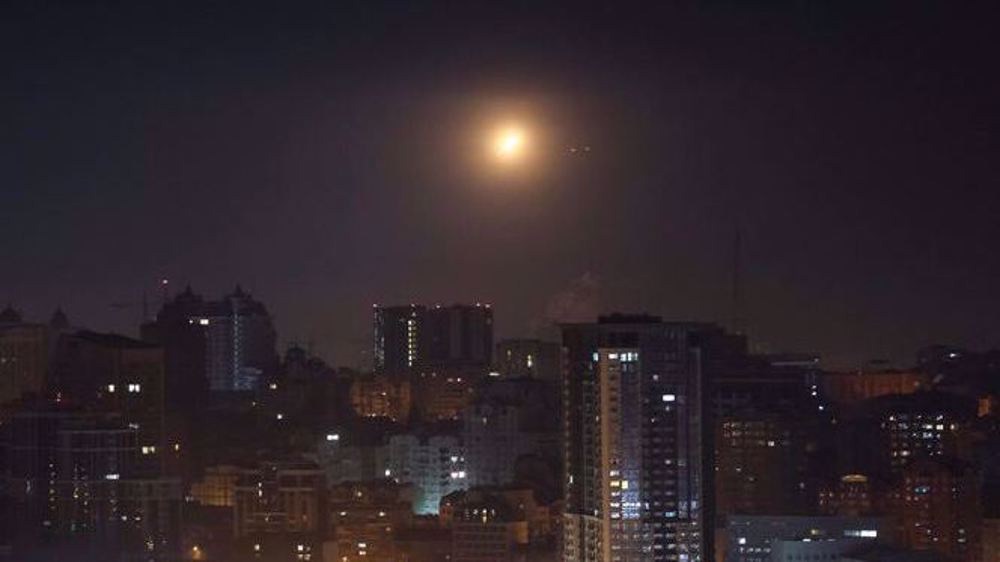
Russia launches ‘record’ strikes on Ukraine: Kiev
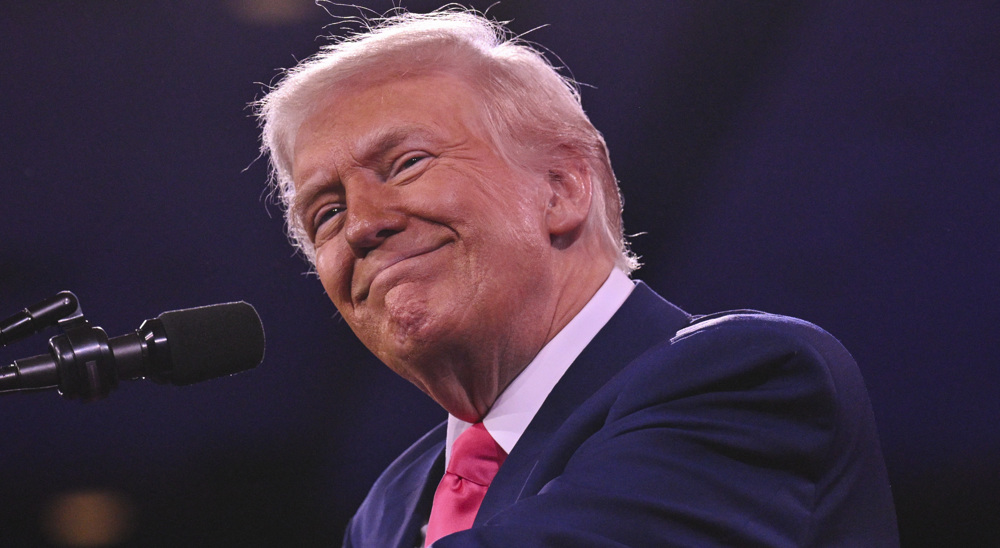
Trump wants return on Ukraine aid: ‘We’re getting our money back’
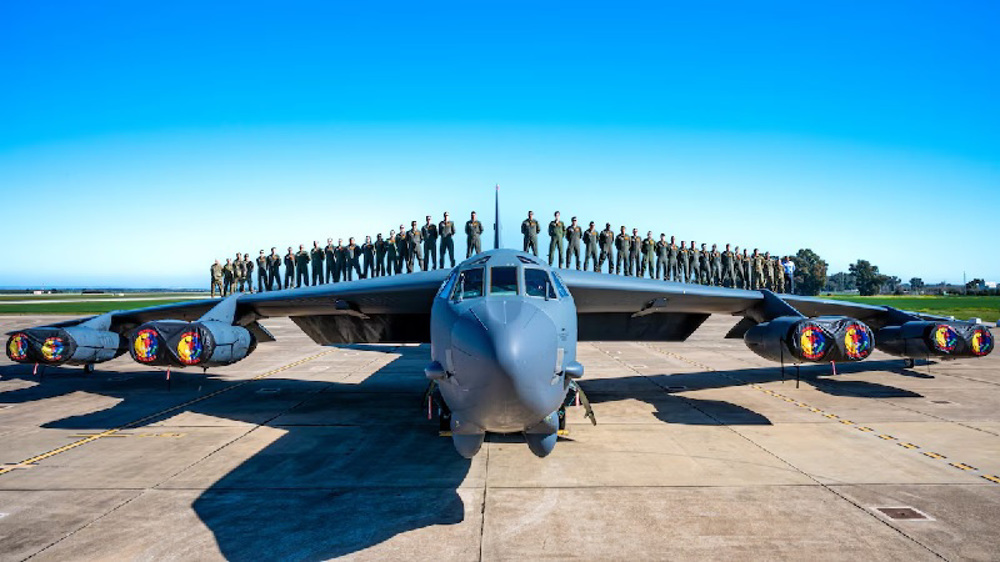
US B-52 bombers in West Asia do not scare Iran
Israel escalates West Bank raids as official says regime seeking to complete Gaza genocide
Australian senator smeared by anti-Iran groups for saying Iranian women ‘have a voice’
Palestinian man dies in Israeli prison as Foreign Ministry urges intl. probe into regime’s crimes
Putin says not opposed to Europeans’ involvement in Ukraine talks
VIDEO | Iranian Kurdish protesters demand European action against PKK, PJAK terror
VIDEO | Israel expands offensive in northern West Bank, deploys tanks to Jenin
VIDEO | Spaniards fill streets of Cádiz in solidarity with Palestine
VIDEO | ‘Genocidal war left al-Shati camp in ruins’


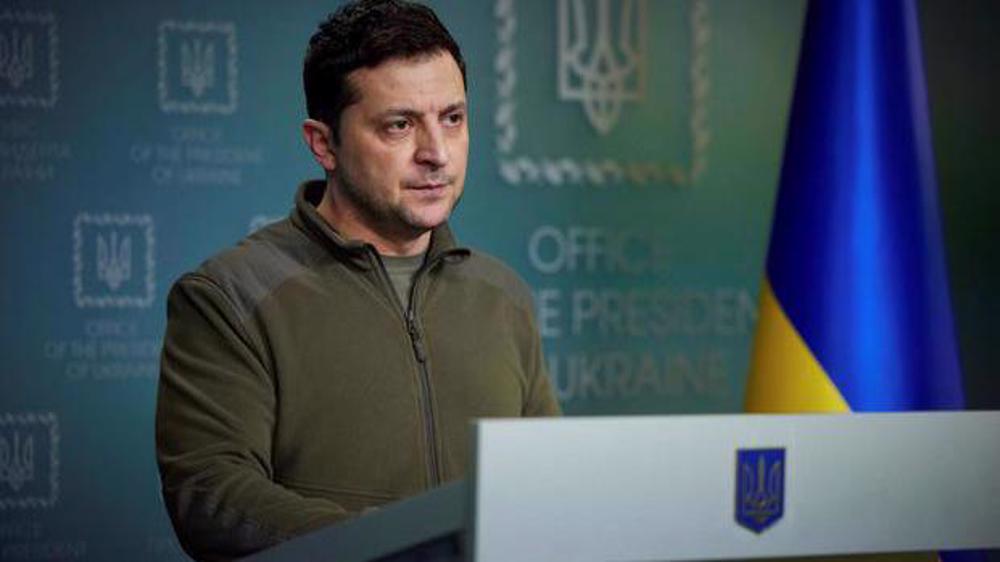
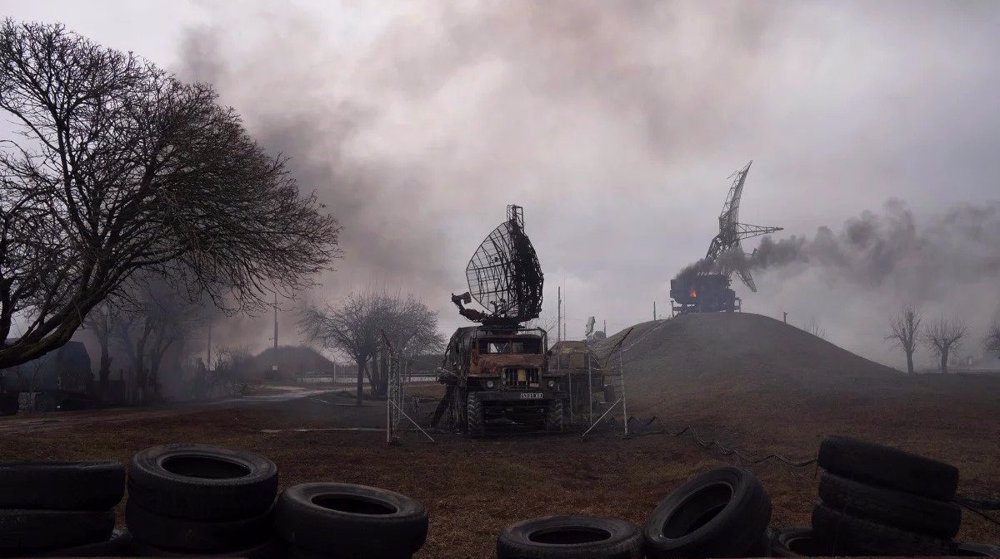
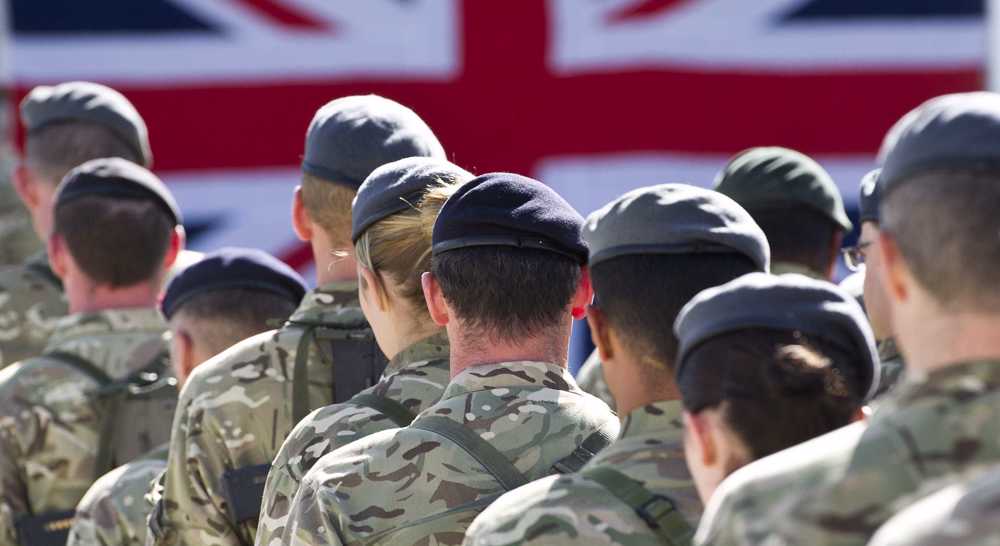
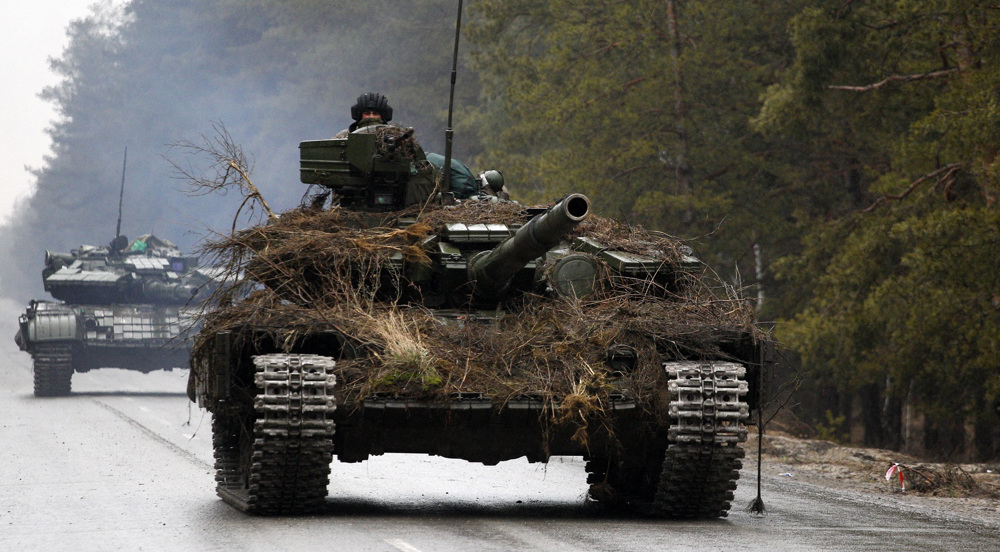



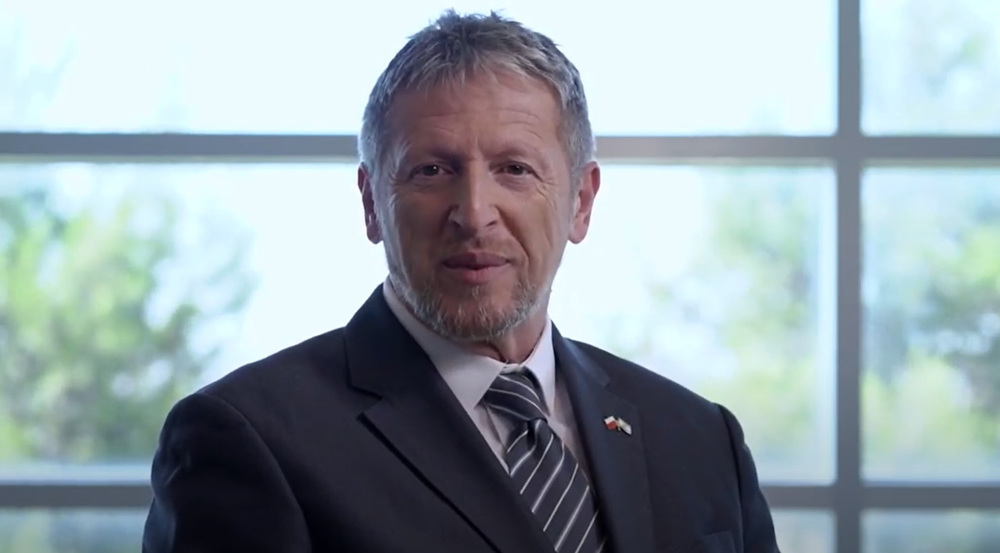
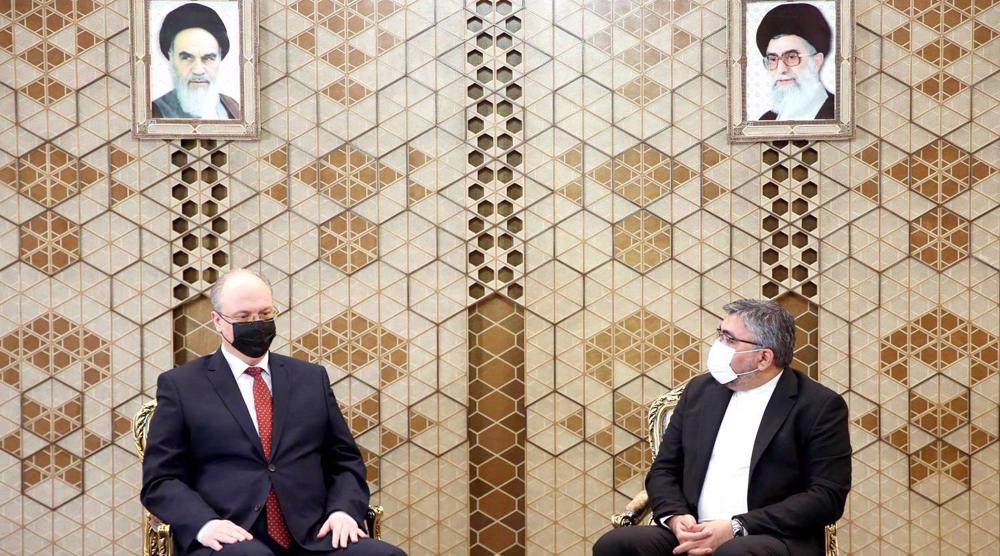
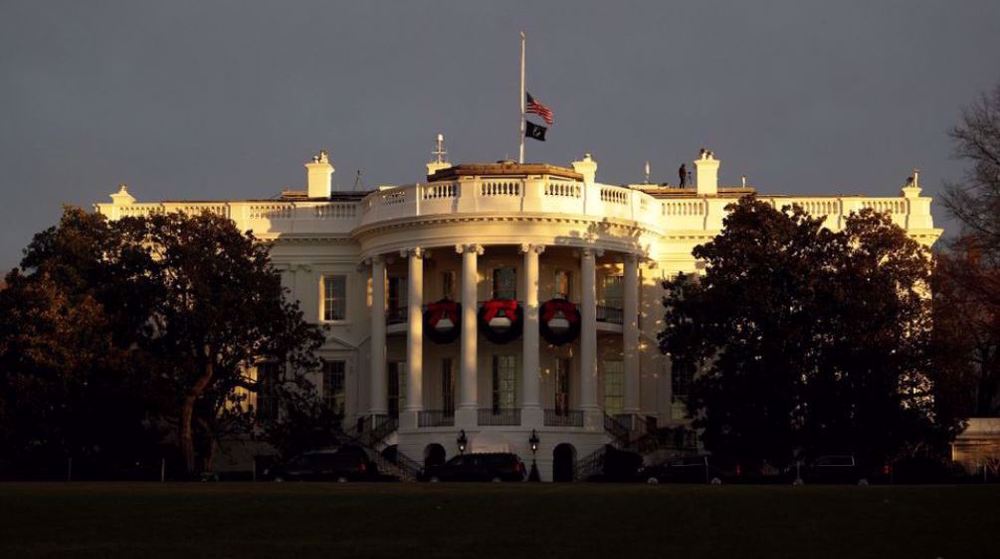
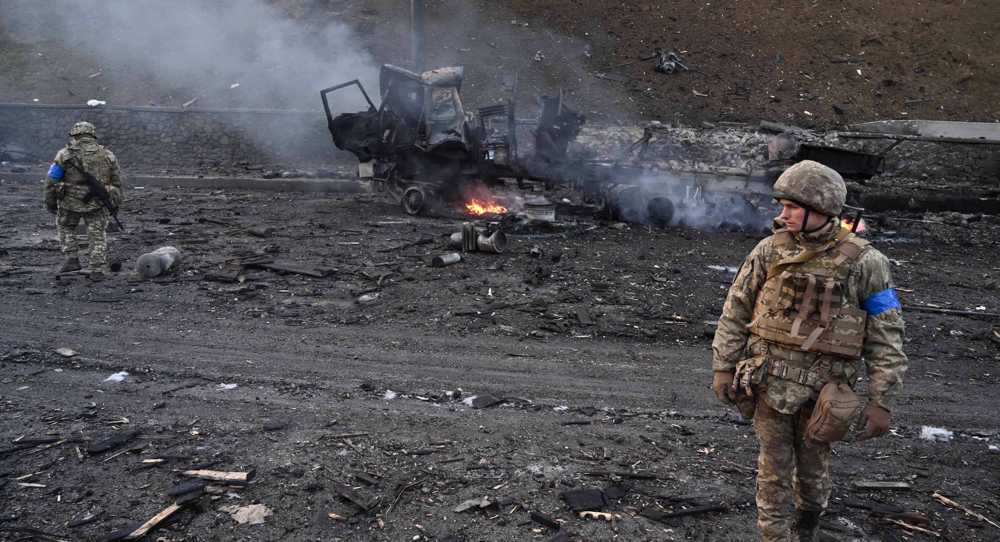

 This makes it easy to access the Press TV website
This makes it easy to access the Press TV website